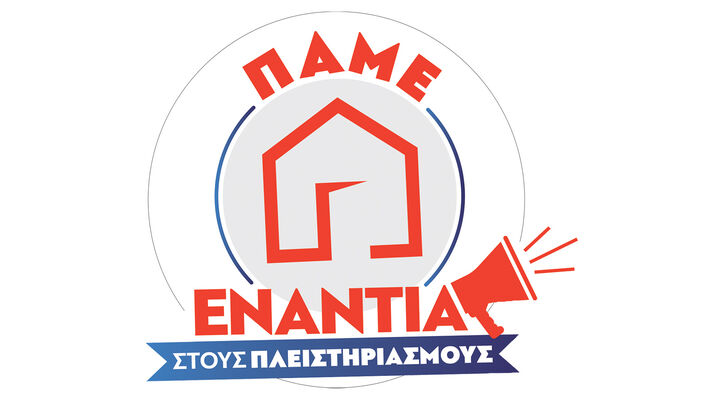The 35 trade-unionists of PAME , who were tried on 20/12, as in the trial the fabricated charges were completely refuted that had been set up by the government, with as their real aims the criminalization of trade union activity and the intimidation for the workers. When the trial was being held, the court building was filled inside and outside by workers and trade unionists who were gathered, in order to express their solidarity.
The cadres of PAME were accused of “disturbing the peace of public service” in the framework of the mobilization organized by federations and trade unions, on the 30th of January 2013, at the Ministry of Labour, in order to protest at the provocative statements of the Minister of Labour, Giannis Vroutsis, that the social-security system “was based on political favours and clientelist relations”.
The government attempted at this time to set up a provocation and to accuse the trade-unionists of causing damage to the Minister’s office. For this purpose, many hours after the arrest of the trade-unionists by the forces of repression who invaded the building, the Ministry of Labour published photos with damage, which supposedly happened during PAME’s protest. As was demonstrated, however, by the photographic material, there was a gradual moving of the furniture into the office of the Minister, which took place hours after the trade-unionists had left the building.
During yesterday’s hearing procedure, even the prosecution witnesses- a secretary and employees of the Ministry- did not in the slightest confirm the accusations which had been brought against the cadres of PAME. This fact was emphatically underlined by the defense lawyers of the cadres of the class-oriented movement.
The Aggelos Vrettos, a lawyer of the trade-unionists, after the end of the trial state characteristically: “Through the hearing procedure and from all the witnesses even those of the Ministry, the fabricated charges were completely and triumphantly refuted and it was very clear that the trial had political characteristics and features in order to strike against the workers who are really resisting.”
The innocent verdict was welcomed with applause and slogans by those gathered outside Building 2 of the courts. In his speech, Giorgos Perros, member of the Executive Secretariat of PAME, and one of the 35 accused, said:
“To begin with, we want to thank all the fellow militants and comrades from the militant lawyers’ movement, who stood with us from the first to the last moment. Those of you who were inside would have heard, and other will have been informed, that even here, the charges were refuted triumphantly, as the comrade lawyer said.
However, we should not focus on this. What do we want to stress? Something basic. The course of the class struggle is not going to stop, however many barriers they place before it. It is not going to stop however many people they drag to the courts. It is not going to stop however many convictions they foist on the class-oriented movement. It is not going to stop, as for many decades it did not stop whatever methods they used. Our answer to the “law and order” dogma of the government is: The law is the just cause of the worker and not the profits of the capitalist.
We think that the mass participation, the solidarity, which was expressed over this entire period and must continue, helped today’s outcome. There are several, dozens in fact, of trials pending all over the country at the expense of the class-oriented trade unions and cadres and workers. We will go to these trials in this way. With solidarity, with participation, with determination, with militancy. This is the path set for us by the workers, we have great responsibility to them and we must not retreat even for a moment.
Leaving here, we think that we should go to find those people who we are with every day. We should find our brothers and sisters, the workers. This is our support. This is our shield against the state repression and intimidation of the employers. So, we must work with working men and women. This is our life, this is the life of our trade unions, this is the life of our movement.
We have serious fronts of struggle ahead of us. The fronts of health, collective bargaining agreements, the unemployed. We must struggle for these demands, intervene against the government, so that the people can live. We must support the unemployed. Our right to work concerns everyone. And, chiefly all these things we are struggling for concern the younger generation, our children. We have a major obligation towards them. Forwards with strength, with militancy so that we can struggle in the battles to come. And as the song says, which we repeat: “don’t expect us to bend even for one moment.”

